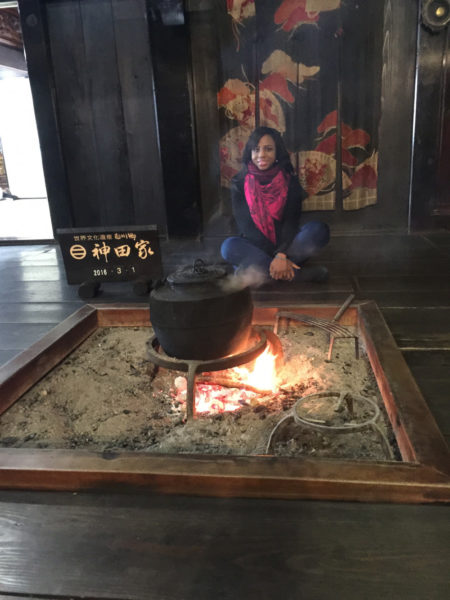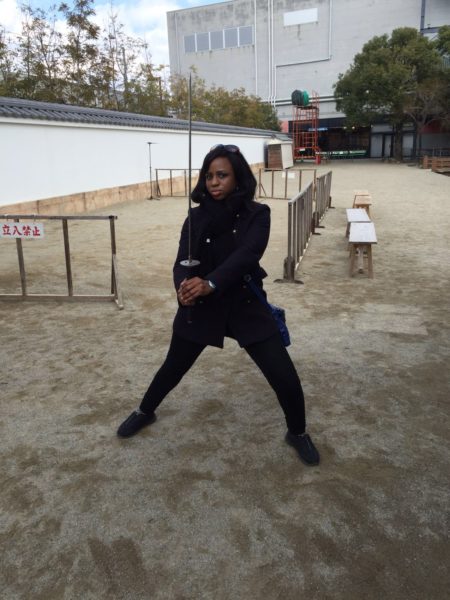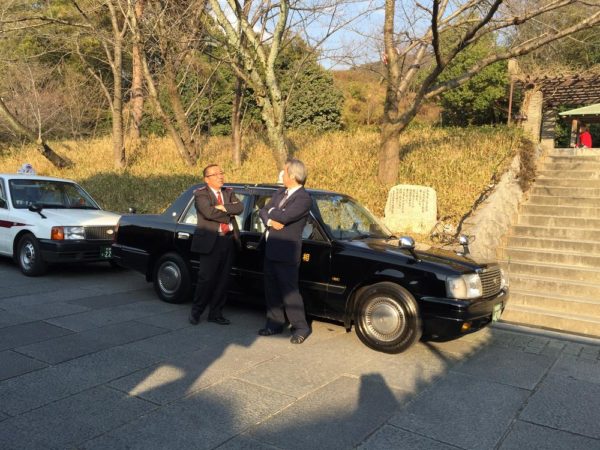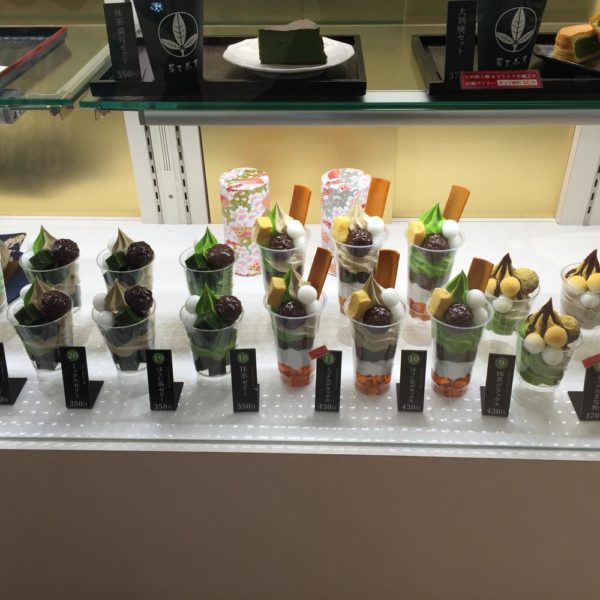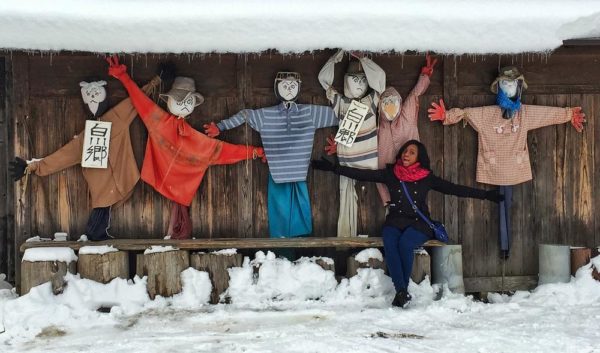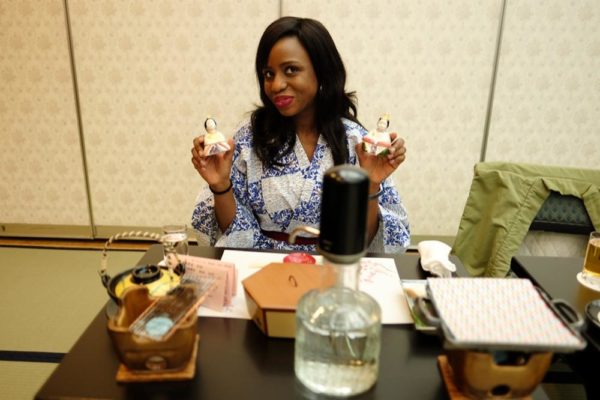Features
BellaNaijarian Kemi O. Shares 7 Lessons From Her Exciting Culture Trip to Japan!
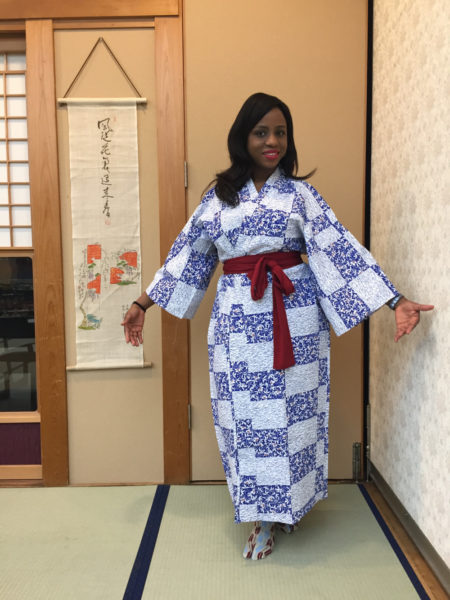 For a while, I’d been trying to get my Asian travel fix but between visa issues and other logistics, I had not been successful. However, the opportunity to join a group of my classmates on a trek/culture trip to Japan presented itself and I immediately indicated interest. Although I had a conflicting event in Boston, I chose to go to Japan because well, there’s always Boston 🙂
For a while, I’d been trying to get my Asian travel fix but between visa issues and other logistics, I had not been successful. However, the opportunity to join a group of my classmates on a trek/culture trip to Japan presented itself and I immediately indicated interest. Although I had a conflicting event in Boston, I chose to go to Japan because well, there’s always Boston 🙂
The 9-day trip covered 5 cities – Tokyo, Kyoto, Takayama, Nara and Hiroshima – as well as a quick stop at Japan’s highest mountain, Mount Fuji, several UNESCO World Heritage Sites spread across the country.
I can confidently say that I made the right decision because my Japan experience was nothing short of transformative and mind-opening. I will attempt to capture the major highlights and main reflections from the trip. Words won’t do justice but I will try (done is better than perfect, right?)
Unparalleled hospitality
The Japanese have to be the hosts with the mosts (whatever that means, it just sounds good to me… Hahaha)Starting from the 5 classmates that hosted us, to every service provider we encountered – cab drivers, hotel/hostel staff, chefs, waiters, immigration officials, train station staff, etc – we were treated with unbelievable warmth and kindness. Gosh!
Everyone was polite and profusely thankful. ‘Arigato gozaimasu’ which means ‘thank you very much’ has to be the most used phrase in that country. For example, at the train station, there was usually a station attendant who thanked everyone (locals and foreigners) who went through the ticket reader! At first, I thought it was a one-off occurrence but I observed this every single time I was at any train station.
At restaurants, our entry was greeted by a warm welcome by all the staff (who were alerted by either a bell at the door or someone announcing that new customers have arrived) and our exit was greeted by another round of (you should know this by now), arigato!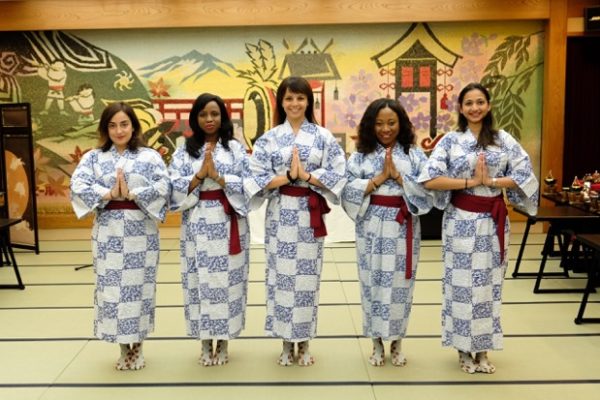
Our hosts (remember these guys are our classmates, not professional travel agents or tour guides) were exceptional. In addition to organizing an incredible trip covering countless historical sites across many cities, they personally attended to each person’s special needs. It was so humbling for me to see my classmates serve us. Due to the language constraints, they never let us wander off without one of them guiding us. Every day, they woke up before the rest of the jet-lagged/wasted crew and ensured everything was set for the day, and they went to bed last as well, ensuring everyone was home safe from crazy nights out. A lot of times, I could see they were clearly exhausted and just wanted to go sleep after dinner, but they would put aside their own need for sleep and still chaperone the folks who wanted to go for post-dinner drinks in the city.
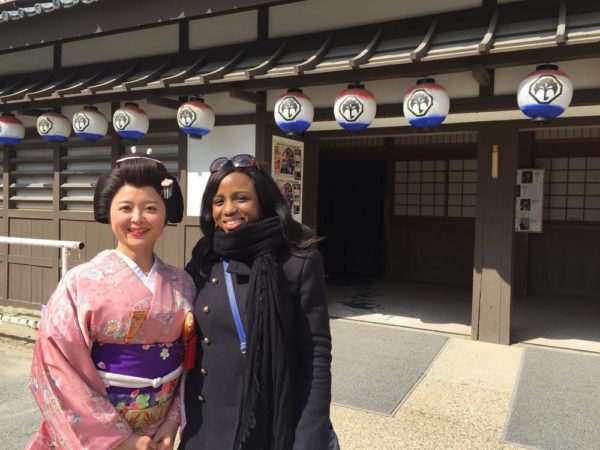
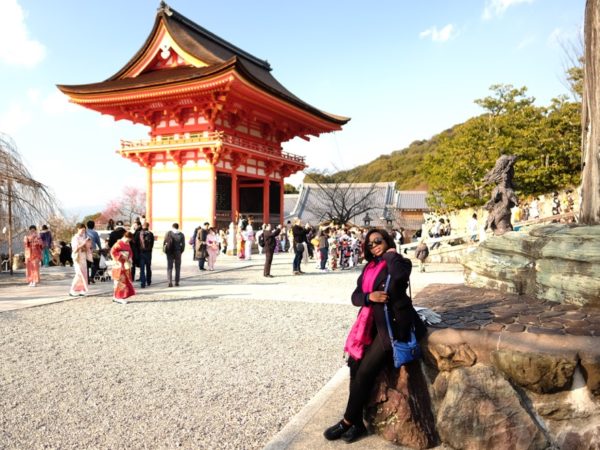
I remember on one of the days, my faithful sunglasses decided to misbehave and I lost one of the screws. I casually told one of the hosts that I’d like to visit a sunglasses shop to get it repaired at some point. The moment we had the next break (about 45 minutes before dinner), instead of going to rest and catch his breath, he insisted on walking with me to the shop to get it fixed. It wasn’t urgent and I felt I could figure it out with Google maps, but he insisted and walked me to the store. And of course, in true Japanese hospitality style, they fixed my sunglasses for me for free!
I can go on and on about our hosts – they were extremely thoughtful and selfless. They put us, their guests, first in everything and found a way to accommodate all our different requests. And seeing how other people treated us and other guests in the various establishments across the different cities we visited, I’m convinced this is a Japan-wide phenomenon.
Balance
Japan is a perfect balance of Western sophistication and warm Eastern hospitality and cultural heritage. Nothing was over the top in Japan. Everything was modestly done, but excellently done as well. It felt like the best of both worlds – where everything works but people are not cold and machine-like.
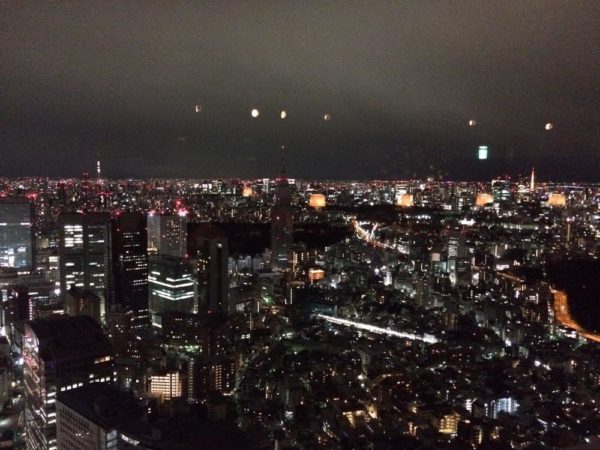
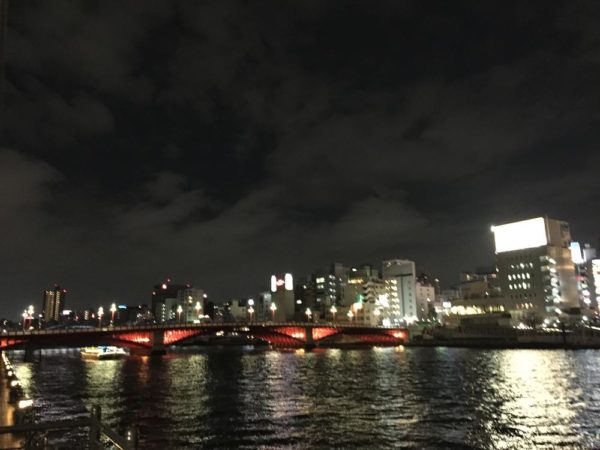
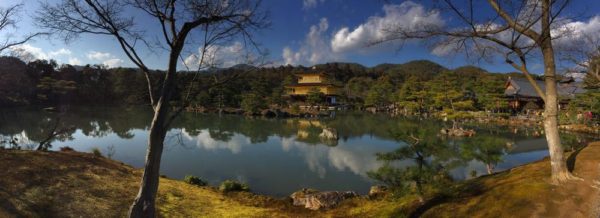
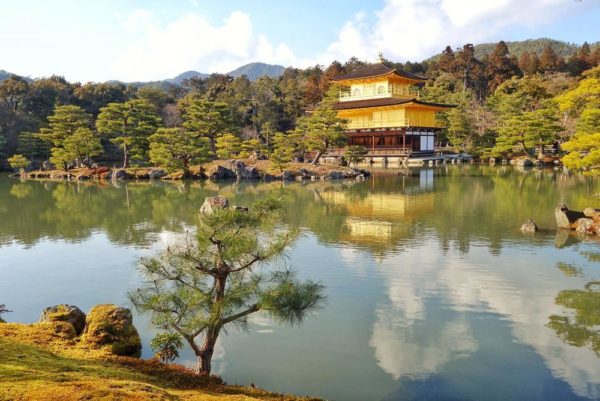
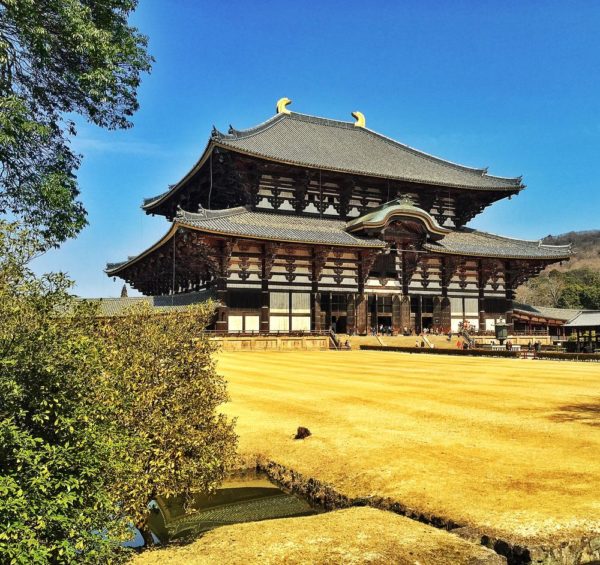
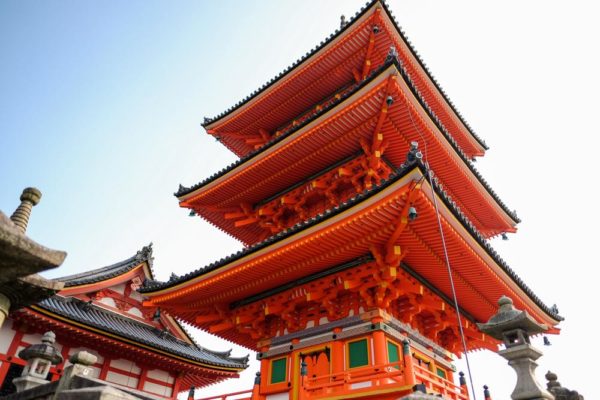
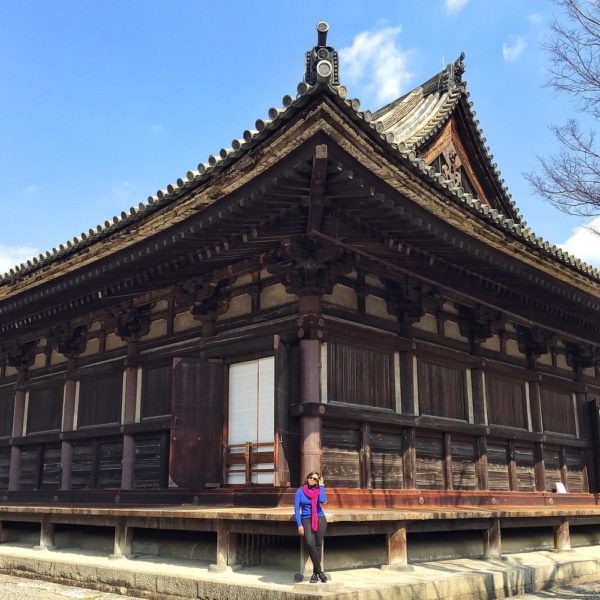

For every new neon skyscraper, there’s an ancient temple structure housing decades/centuries of history and cultural heritage. Even the fancy restaurants serve authentic local wine and brews and the national dish, sushi. Although they have fancy WC toilets that are heated and have tons of buttons (can you imagine what joy it is to sit on a warm seat on a cold winter day?), they also have traditional Japanese toilets available side-by-side these modern toilets.
Japan has managed to maintain that fine balance and show that you don’t have to trade off your heritage for development/advancement.
Serenity & Organized chaos
Japan is a peaceful and serene country. Streets were quiet and calm in all of the cities we visited. Despite the dense population, their train stations have to be the most quiet I’ve ever experienced. There are no loud people on the trains (well, except for us, but we adjusted quickly), no loud gum chewing, no loud phones ringing, no loud conversations on the phone or between people. Everything was serene! Even the busy crossings at major highway intersections never got clumsy/disorganized. Everyone moved in a straight line, stayed on their lanes, cars didn’t honk unnecessarily (they didn’t even need to), drivers indicated well in advance of their turns and stayed on the right lanes. In spite of this, people were willing to stop and answer questions or give directions if needed. So it was easy, efficient and organized, yet still humane!
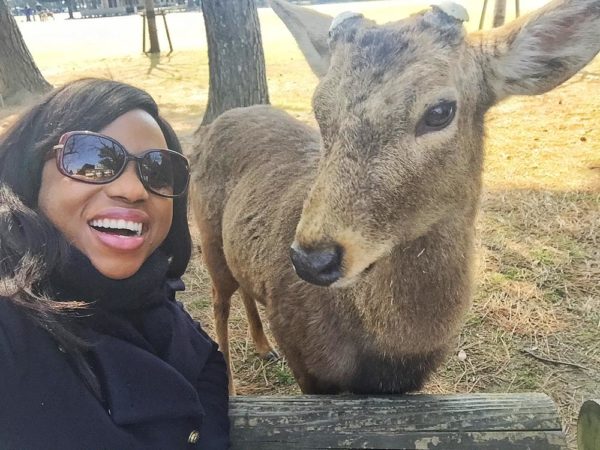 Efficiency for days
Efficiency for days
First sign of efficiency I experienced on getting to Japan was at the airport. It was the fastest immigration process I had ever gone through – from plane to luggage was about 20 minutes! I kept wondering if there was another process I had to go through after I got my passport stamped. For the first time, I saw all the 20+ immigration counters open and manned at an airport. Even in the most developed countries, you find extremely long immigration queues because only 4-6 counters are opened and I’ve wondered why build/equip 20 counters if you’re only going to use 5??!! The Japanese do it wayyyy better! And I didn’t have to wait for eternity for my luggage, it was waiting when I got out. For someone like me who loves to travel but doesn’t like airports (queues are a waste of time and all the nice shops at the airport are a huge temptation), the Japanese airport efficiency is a dream come true!
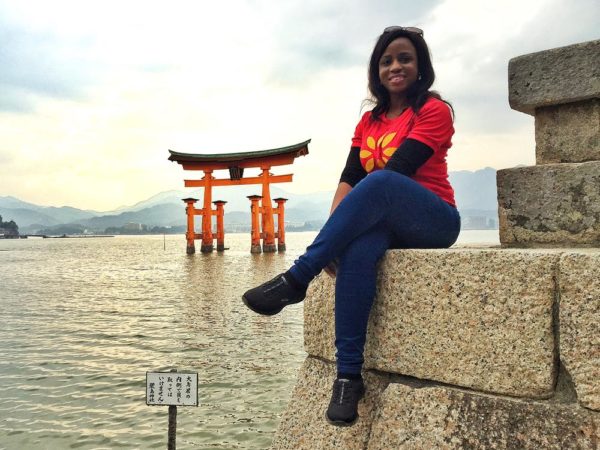 This Japanese efficiency shines through in everything – the way the restaurants manage seating arrangements, the way the cabs queue at the right places (almost on every major corner so you don’t have to walk too far to get a cab), the way vending machines are a dime a dozen all over the city so you don’t have to go into a store to queue for just one can of coke or bottle of water, the way the escalators are designed in train stations (most only go up, and there are regular stairs to go down since it’s easier to walk down a flight of stairs) and so much more.
This Japanese efficiency shines through in everything – the way the restaurants manage seating arrangements, the way the cabs queue at the right places (almost on every major corner so you don’t have to walk too far to get a cab), the way vending machines are a dime a dozen all over the city so you don’t have to go into a store to queue for just one can of coke or bottle of water, the way the escalators are designed in train stations (most only go up, and there are regular stairs to go down since it’s easier to walk down a flight of stairs) and so much more.
Dignity of labour
The Japanese are not only efficient, they are also very hardworking. They take every job seriously and are always dressed properly. All the regular cab men (not Uber or fancy chauffeurs o) dress in suits. At first, I thought it was a Tokyo thing but in every city we visited, it was the same – a suit, white shirt and tie. You also find them cleaning their cars while they wait for passengers. You’d think they were chauffeurs to royalty.
Even the way the chefs prepare food is impeccable. The way they serve and present food is excellent. This is not limited to just nice restaurants but also to low-end local spots. I’m a picky eater and I’m usually put off by how food looks but I was so taken by the beauty of the food, the colors, the flavors, the aroma, the balance between cold and hot, the presentation, that I forgot a lot of my finicky ways. Every meal was a hit, back to back!
The commitment to excellence in everything they do was evident – from serving only fresh meals, sourcing the best ingredients, maintaining high levels of hygiene (hello hot towels at every meal), to courteous well-dressed staff at all service points, and English-speaking volunteers roaming at main metro stations to identify lost tourists and help them, just to mention a few examples.
Honesty
I knew the Japanese were kind and good-natured people but one particular encounter at a restaurant (food again? Yup!) blew my mind. We were at an ‘okonomi-yaki’ joint in Hiroshima and as usual, I was fascinated by the expertise the lady making the ‘pancakes’ displayed as she tossed veggies, cracked eggs and seasoned food like she was working with play dough.
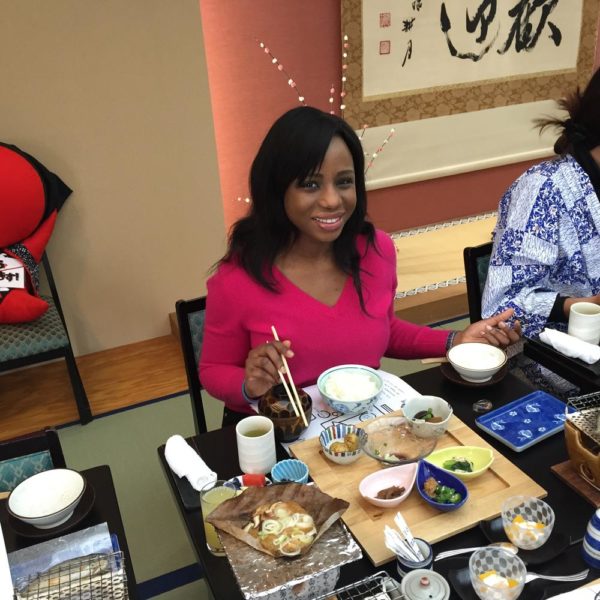
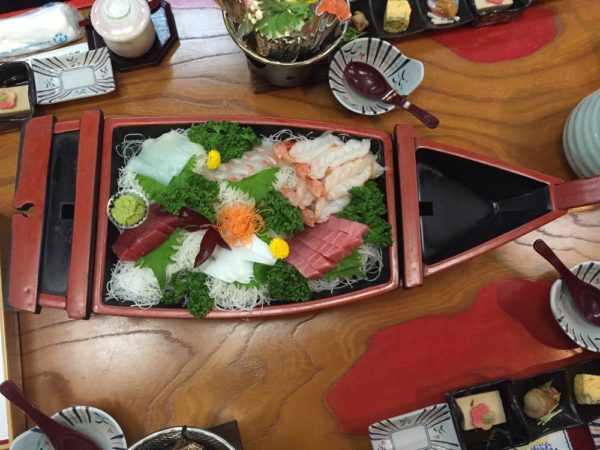
As a true Nigerian with a love for chilli, I’m always on the lookout for good chilli sauces (please don’t bring Tabasco near me) that I can use to spice up my food when I’m abroad. I tried one of the habanero (fancy name for ‘ata rodo’) sauces on the table and fell in love instantly. It was perfect! I sharply asked one of the hosts to enquire where I could buy the sauce from and the lady could see how excited I was about the sauce. She said she had one new bottle left and would sell it to me. Pause! At this point, I was suspicious. If it was my country (and a few other people at the table echoed the same thing about their own countries), my excitement would have instantly translated to a price premium being placed on that bottle of sauce, especially since no one at the table knew what the actual price was. However, this woman shocked me and everyone at that table. She brought out the sauce AND the original receipt from the grocery store where she had bought her supplies from. She showed us the wholesale price and said I should just pay that amount for the sauce. I was weak! She didn’t try to take advantage of my desperation and ignorance – she sold it to me at the exact price she bought it at. Who does that? Even if I had any reservations about Japan, that lady’s actions won me over!
 On the last day of the trip, our hosts even returned part of the initial deposit money to us because some exchange rate fluctuations had been in our favour. Everyone was excited to have extra cash but if they didn’t give it to us, we would never have known or bothered to check what the exchange rate was.
On the last day of the trip, our hosts even returned part of the initial deposit money to us because some exchange rate fluctuations had been in our favour. Everyone was excited to have extra cash but if they didn’t give it to us, we would never have known or bothered to check what the exchange rate was.
The few times I dropped my PassMo (a generic preloaded metro card similar to the UK’s Oyster card), someone would chase me down to return it to me, when they could have just kept it since there are no names inscribed on the card. The Japanese are honest people, period!
In addition to these profound observations above, I also noticed a few quirky things:
• Their obsession with green tea (also known as matcha) is real. There’s green tea flavour of everything imaginable – milk shake, ice cream, chocolate, popcorn, nuts, noodles – you name it and there is a match flavour of it.
• Apart from my other Nigerian classmate on the trip, I was the only black person in sight for days, lol. I eventually saw about 5 more black people over the course of the 9 days I spent there. This made me wonder where my Naija brothers at? I thought there were Nigerians everywhere. In spite of being so obviously different, I never felt uncomfortable, stared at or treated weird (apart from the extra 3 minutes, a customs official grilled me for upon arrival at the airport.
As I returned back to base, I have renewed hope that we, as a nation, can become great if each and every one of us imbibed and embodied all the amazing things that Japan stands for, and more! It begins with me and you. The change has to be bottom-up. I doubt that a legislation or policy was what made Japan great. Laws alone are not enough to birth the skin-deep, inside-out awesomeness of Japan and its people. I am challenged to be a better person and a better Nigerian – to obey rules, to embody integrity, to be kinder, to be excellent at whatever it I do, and to be so awesome that people fall in love with my country and want to experience it again and again.

